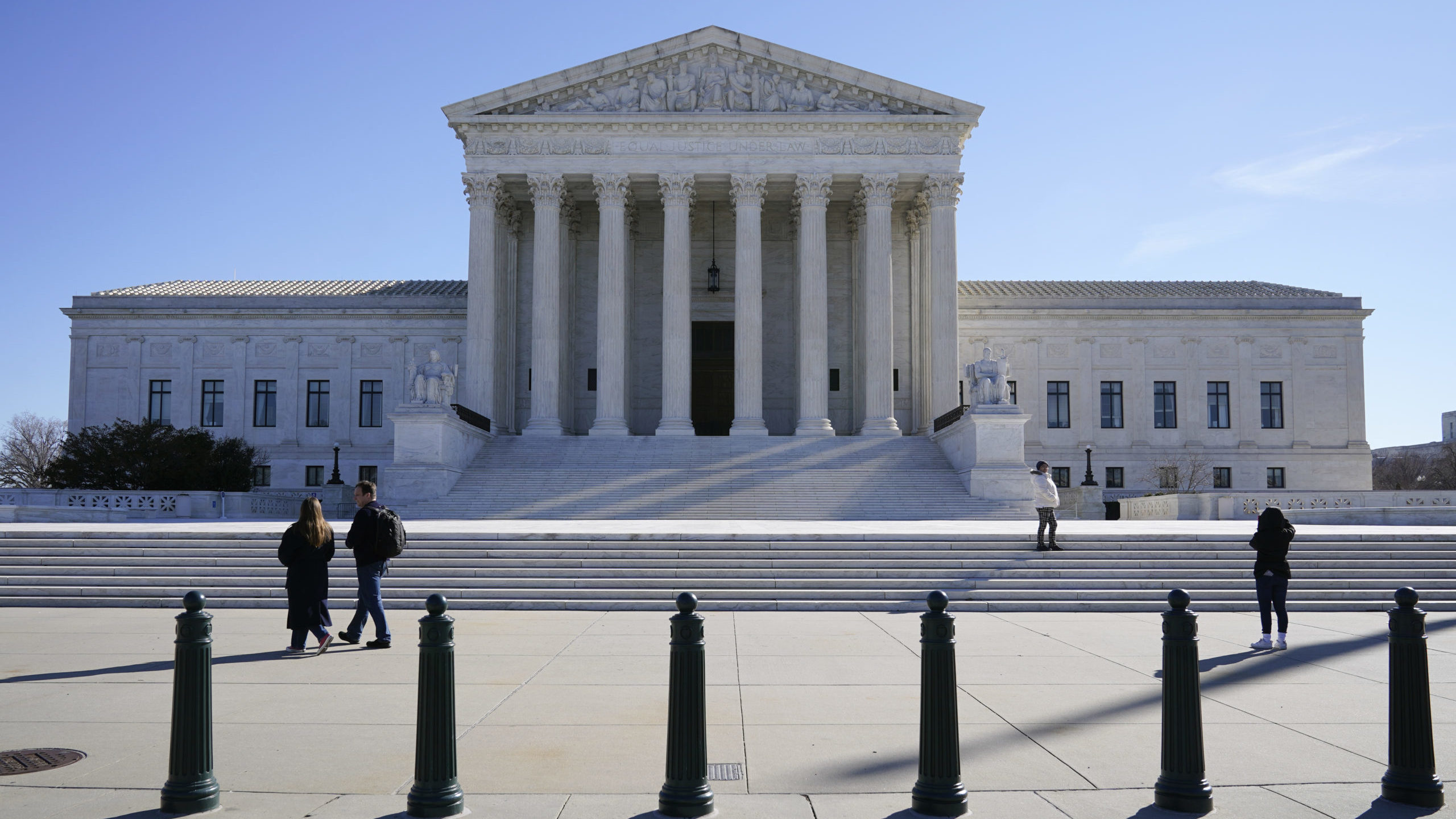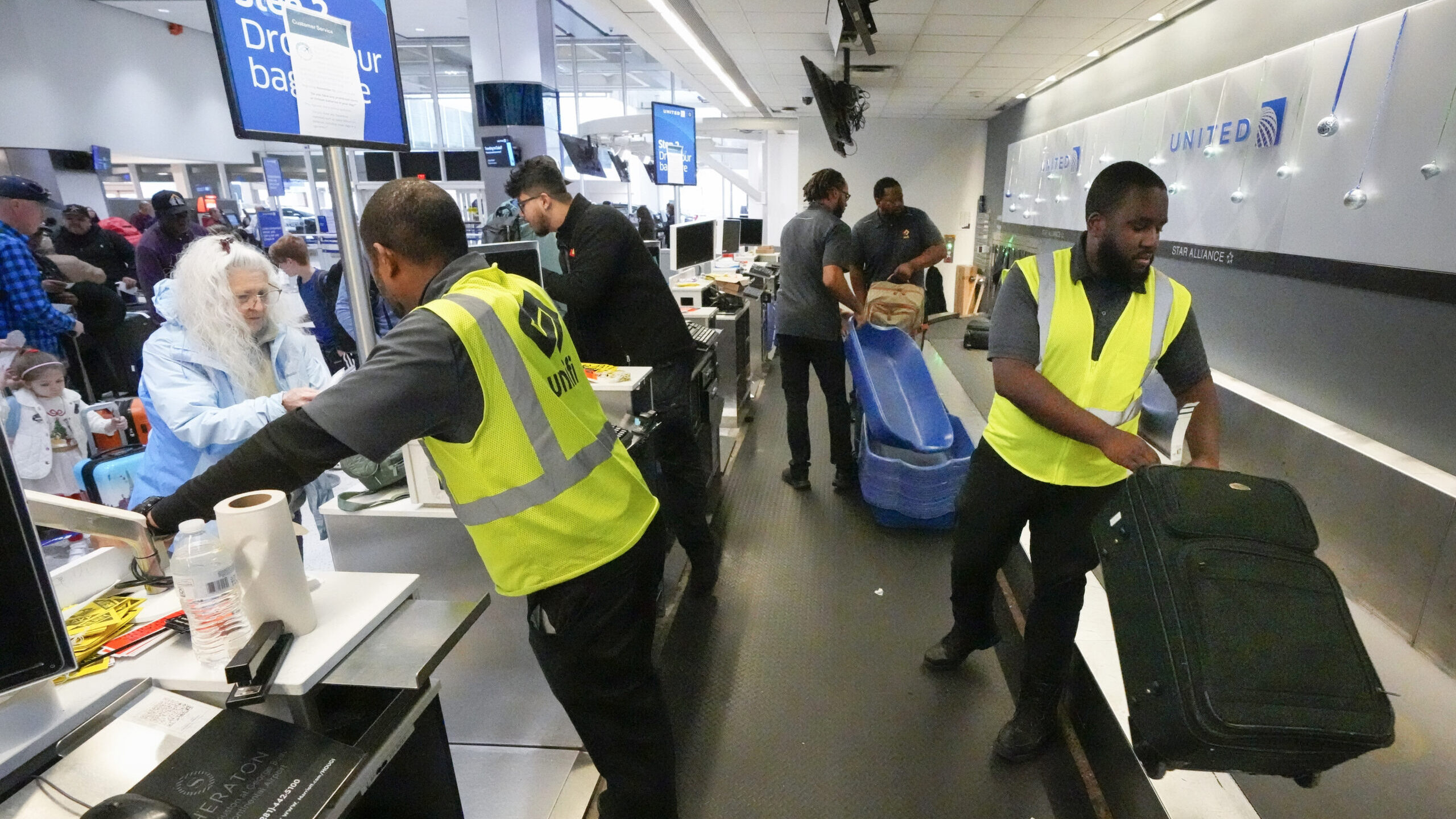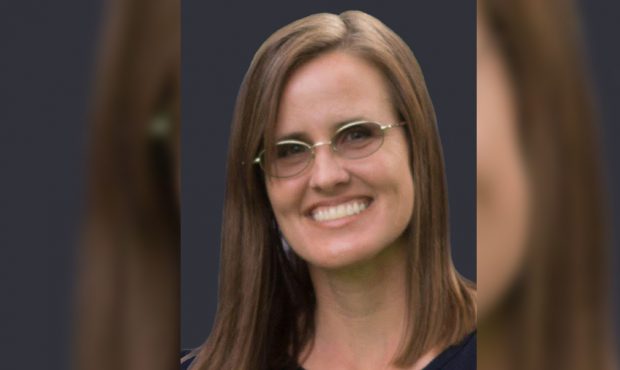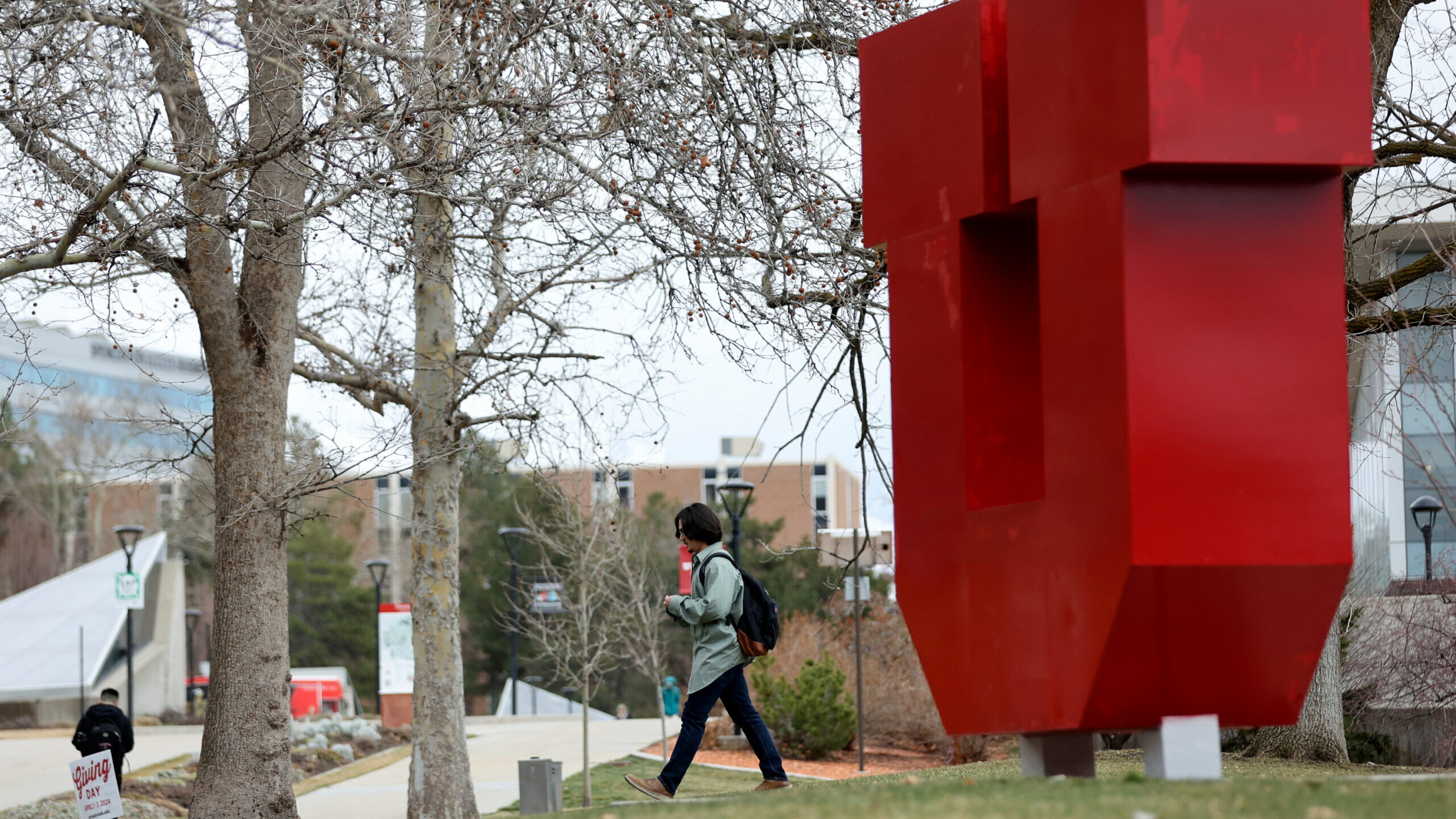Utah law professor: Overturning Roe v. Wade would leave abortion laws to the states
May 3, 2022, 8:38 AM | Updated: Dec 30, 2022, 11:20 am

FILE - Visitors walk outside the Supreme Court building on Capitol Hill in Washington, Feb. 21, 2022. (AP Photo/Patrick Semansky, File)
(AP Photo/Patrick Semansky, File)
SALT LAKE CITY — The draft Supreme Court decision overturning Roe v. Wade would leave laws on abortion up to legislatures, with wide variations expected from state to state. That’s the view of University of Utah law professor Paul Cassell, who spoke to KSL NewsRadio on Monday evening.
The leaked Roe v. Wade document was published by the Washington DC-based website Politico on Monday. Its authenticity has now been verified by the Supreme Court, although its release was unauthorized.
JUST IN: The Supreme Court confirms the authenticity of the draft opinion revealed last night by Politico. The chief justice has ordered an investigation into the leak. pic.twitter.com/XZweHdyhCG
— SCOTUSblog (@SCOTUSblog) May 3, 2022
Cassell said the document could be the outline for a forthcoming decision.
“I think we have to take it with a grain of salt,” he said, “but typically, once a draft circulates, it’s very common for that draft to end up being the ultimate decision of the court.”
“The net effect will be to return the abortion issue back to the states. In other words, Utah, California, New York, Florida, they’ll all have to pass their own laws and regulations dealing with abortion,” Cassell said.
He doesn’t expect those laws to be the same across the country.
“California’s going to have a much more liberal or generous approach to the circumstances in which abortion is permitted. Utah and other conservative states are going to have much more restrictive approaches,” he said.
Utah, in fact, already has a so-called “trigger law” on the books. SB 174, passed in 2020, which would only take effect if Roe v. Wade is eventually overturned. It would prohibit most abortions except in cases where the pregnancy was the result of rape or incest, where two doctors certify a fetus could not survive outside the womb, or to save the life of the mother. A number of other states have similar laws.













